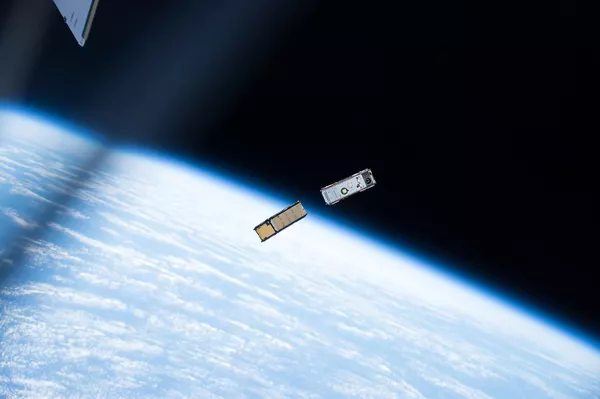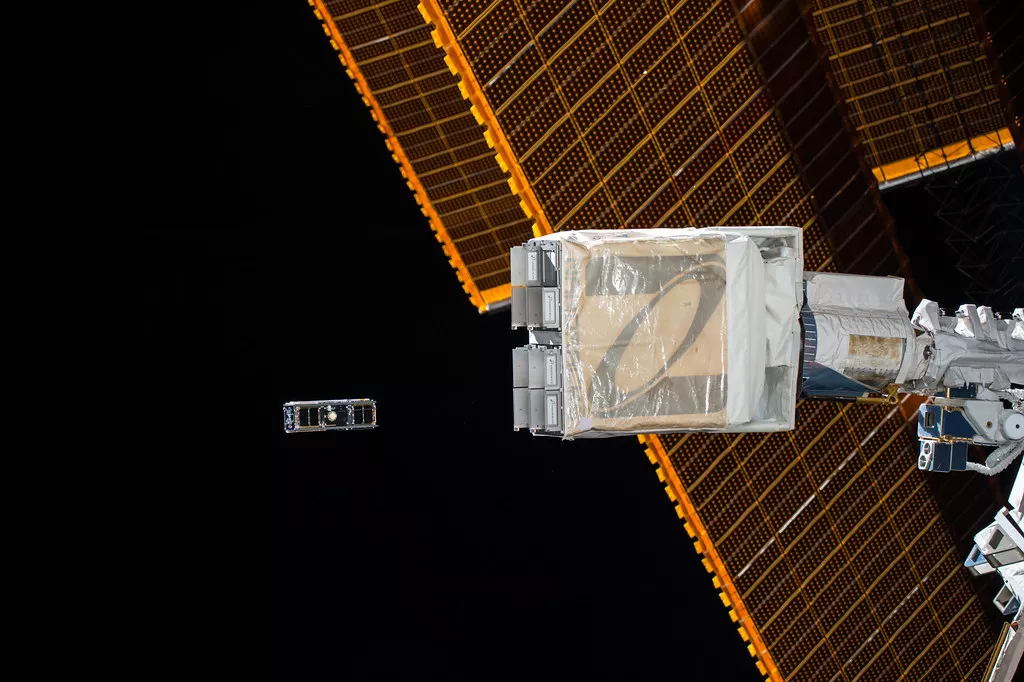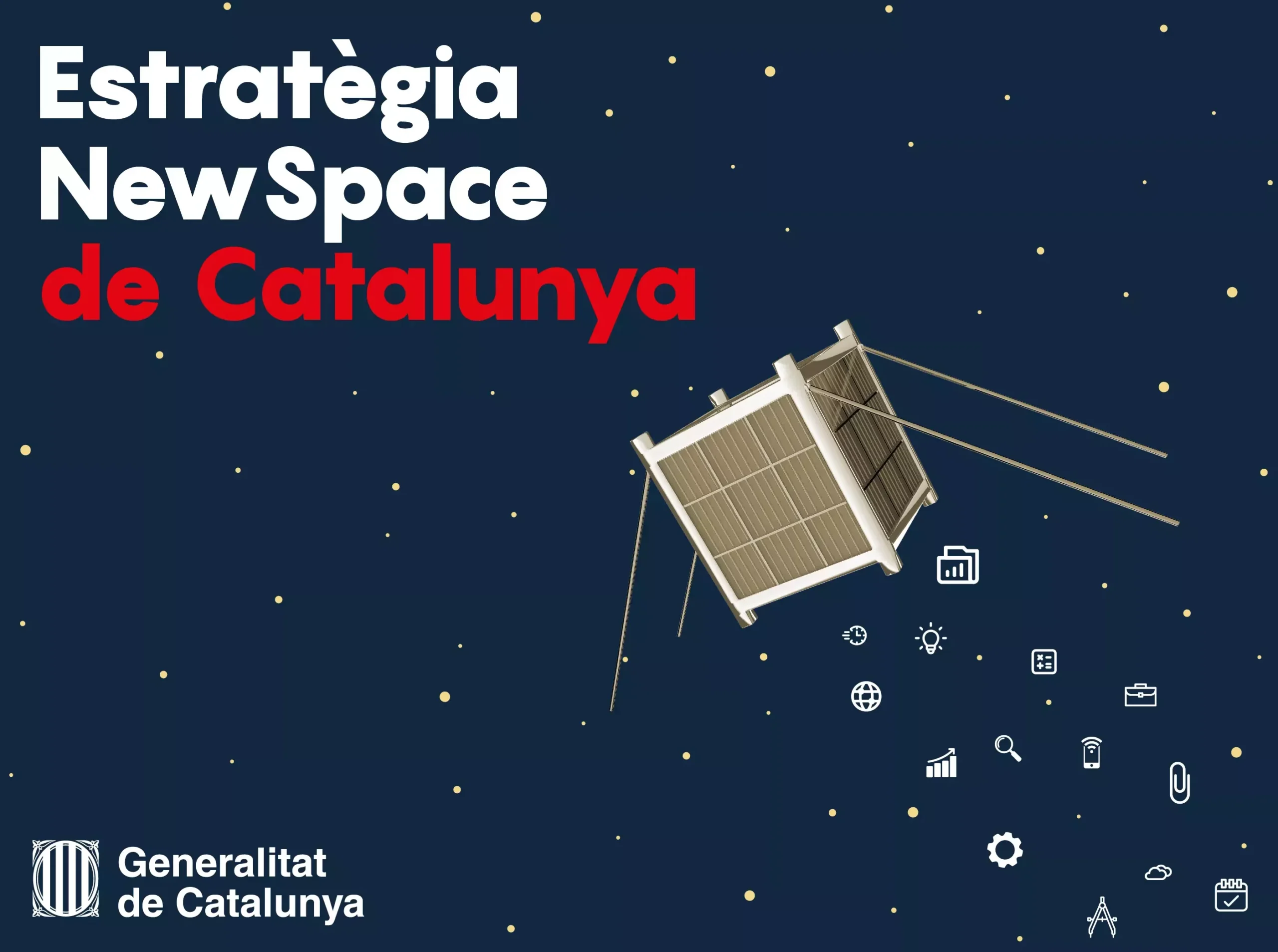NEWSPACE
The new space economy
Space science research has generated revolutionary technologies that have expanded human knowledge and provided great societal advances.
From the beginning of the space race in the last century and until recently, the exploration and exploitation of space has been synonymous with state public investment and government policies, with a high cost and a very long time of development, which was an entry barrier for many countries and companies.
The new space economy (or NewSpace) represents a disruptive leap in the use of space thanks to the deployment of small satellites (nanosatellites), based on advanced industrial and digital technologies, and cheaper and faster development. Nanosatellites, defined from the CubeSat standard (a cube of side 10 cm), have become the ideal platforms to balance the performance and capabilities of satellites with the cost of production, launch and maintenance. These satellites are usually placed in Low-Altitude Orbits (LEO), located between 200 and 1,200 km from the Earth’s surface.
The NewSpace represents the democratisation of access and use of space, and has a huge impact on the services users receive. It offers a set of digital services with a strong capacity for innovation and generates a new market, a new economy with great growth and open to the participation of start-ups, SMEs and large companies, as well as public entities looking for new opportunities in the space sector.
This new space economy makes available to new sectors the use and exploitation of space platforms for a wide variety of applications, such as Earth observation, navigation and telecommunications, and scientific and technological research. These are new applications that allow better management of the territory and infrastructures, the measurement and mitigation of the effects of climate change and having communications coverage, among many others.
The NewSpace sector has consolidated globally with thousands of nanosatellites in orbit and with enormous growth compared to the launches carried out over the last decades.


NewSpace Strategy of Catalonia
In October 2020, the Government of Catalonia approved the NewSpace Strategy with the aim of taking advantage of this paradigm shift’s opportunity for the space sector and boosting its growth based on the existing strong capabilities of the space and digital sectors.
The IEEC has participated in its definition and deployment, together with the i2CAT Foundation and the Cartographic and Geological Institute of Catalonia (Institut Cartogràfic i Geològic de Catalunya, ICGC). These three institutions are key for the promotion of the space sector, advanced digital technologies and services based on geospatial data, respectively.
Catalonia has the infrastructure, knowledge and technological background and it is a relevant player in the NewSpace field, with substantial experience in research and innovation, launch of missions, payload design, ground facilities, space telecommunications, as well as in commercial activity based on the exploitation of data obtained from satellites. In addition, it has a first-class digital ecosystem that contributes decisively to the impetus of the NewSpace, thanks to the synergy with areas of knowledge such as artificial intelligence, cybersecurity, advanced electronics for sensors and computers, 3D printing and additive manufacturing, secure communications and next-generation mobile communications (5G and loT), among others.

Area for the Promotion of the Space Sector of Catalonia
The IEEC incorporates within its structure the Area for the Promotion of the Space Sector of Catalonia (APEC). The IEEC Board of Trustees approved the creation of the APEC to articulate the promotion of the NewSpace sector in Catalonia and the advancement of knowledge in related areas, as planned in the NewSpace Strategy.
The APEC contributes to the various pillars of the Strategy and it carries out R&D&i promotion activities, talent retention, construction of key infrastructures both space and terrestrial, and the development of services and applications intended for the administration and industrial sectors. The strategy aims to grow the ecosystem by strengthening national capacities in the medium and long term, and promoting international collaboration, always maintaining the entity’s commitment to the criteria of social responsibility.
The APEC coordinates its activities with the Generalitat de Catalunya and the other entities promoting the NewSpace Strategy, ICGC and i2Cat, and has been assigned, among others, the following functions:
Acting as a single window to facilitate access to the space sector for companies and entities by reducing administrative barriers and assisting in administrative and legal processes.
Defining and executing support programmes for the space sector ecosystem.
Creating the necessary facilities and infrastructure and with the appropriate funding for their implementation and operational maintenance.
